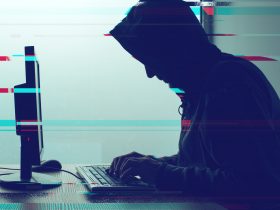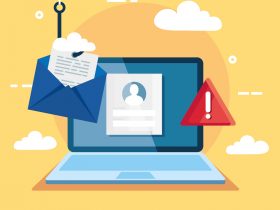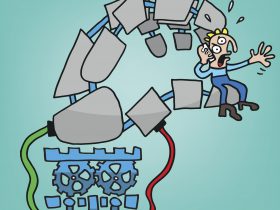To securely and sanely manage your new home office, it’s time to ask yourself a question: Are you in the first or second group of home workers?
With the coronavirus/COVID-19 virus raging outside, there are two basic groupings of people working from inside their home bunkers. The first group is of people whose employers have kitted them out with computers and almost all of the needed bits for secure and easy communication. Then there is the second group – those that got the last-minute command to stay home, keep working, and do it with their existing home devices.
Both have reasons to be concerned as fusing work and play within a single network brings an array of security challenges. Ransomware has long utilized copycat tactics to phish its way into email inboxes and coronavirus is no exception. As the medical threat from the real coronavirus increases, the threats from virus-themed attacks are increasing exponentially. But there are also differences by group. If you are in the first group, you are almost – but not entirely – off the hook. But if you are in the second group, sitting down to a home computer while knocking out professional tasks – you have some additional steps to take to make sure both you and your company are doing this home office routine securely.
Here are five steps and one click for making your home office (regardless of whether you are in the first or second group) more secure:
1. Check that WiFi router
The WiFi router is the literal doorway to your home network – so do you have it locked down to keep out unwanted intruders? Basic WiFi hygiene starts the moment you take the new device out of the box and change the password from the default settings that it came with – and creating a more secure combination of numbers, letters and symbols. If you have not done that, do it now. Avira research has found that nearly a quarter of of attacked home devices – and this includes routers — operated with no password. Just behind this were those using devices with the default settings. This is a wide-open door for brute-force attacks by hackers with lists of default passwords. Securing your home router is essential for everyone working from home – even if your employer has equipped you with a work PC. The easy way to create and managed this process is with a password manager — because you certainly have more than one account with a password.
While you are checking the router password, check to see if the router itself has a pending firmware update. Again, because the router is the doorway to your home, make sure that this door operates correctly.
Stay home. Stay connected. Stay safe.
Get everything you need to secure your digital home - for free. Avira Free Security includes VPN, antivirus, speedup, and much more.
2. Are you updated?
Is your device fully updated? If you have a managed device from work, the company admin is responsible for this. If not – this one is up to you. Software (even hardware) updates are a fact of life and essential to being protected against new and emerging threats. Running a device which is not fully patched can be like going into a rainstorm under-dressed and without an umbrella: Your clothing choices won’t directly cause an infection but it increases the likelihood of getting sick. Patching can be especially important if you are reactivating an older device with older software. The best way to keep on top of the needed updates is to have a software manager on the device which either alerts you to needed updates or does it all automatically.
3. Get scanned not scammed
It’s essential to have a functional, certified antivirus scanner on your device to block out incoming malware – whether this is ransomware, traditional viruses, banking Trojans, and spyware. In addition, a good AV will help automatically repair or quarantine compromised files without requiring your involvement. They can also keep you from redistributing malware that targets another operating system – a basic IT version of social distancing.
4. Guard the browser
There is an epidemic of illness-themed dashboards being passed around via links and social media which are designed to bring down your device. The Avira Protection Lab has blocked hundreds of topical URLs and security firms are exchanging lists of suspect sites. By adding a security plugin such as the Avira Browser Safety, you can help keep your device browser from connecting to infected sites.
5. Keep it private with a VPN
A Virtual Private Network (or VPN) creates a private and encrypted message space. At Avira, we think of this as a registered letter that is not only sealed in an encrypted envelope, shuts out trackers along the message pathway, and both parties have to sign for it. VPNs are an essential part in almost every company laptop – particularly for those using unsecured networks. If you have a managed computer from work — it probably has a VPN. But just because they are a a corporate essential, they bring an array of privacy benefits to individuals by shutting out trackers and eavesdroppers.
One click is all it takes: Get work and home covered for free
As a home office worker, you are the responsible de facto administrator of your network. Taking care of all five steps is not complicated or costly. By downloading Avira Free Security, you can have all of these functions at your fingertips – password management, software updates, antivirus scans, browser protection, and VPN – and you can have them completely for free. One click is all it takes.














